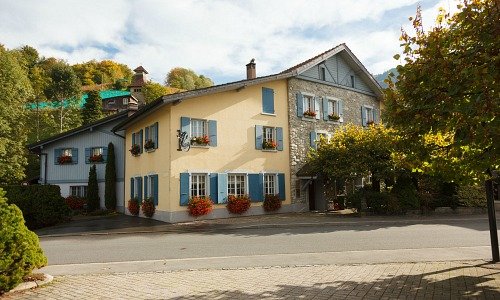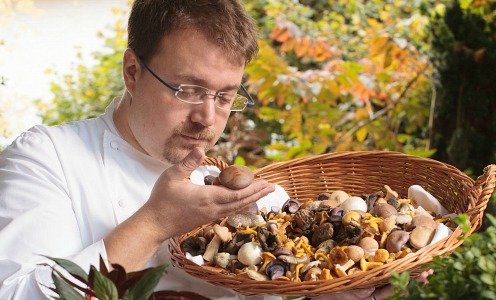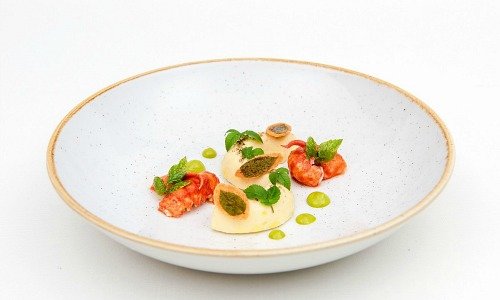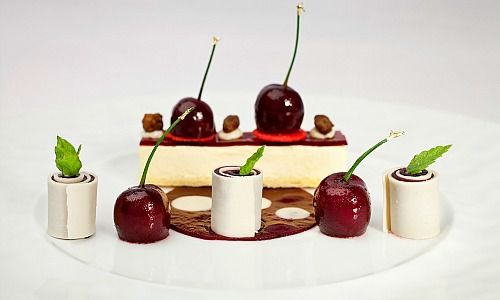Stéphane Décotterd, a Michelin-starred chef, has eliminated lobster, pineapple, and coconut from his kitchen – and invents a new breed of ultra-local gourmet cuisine.
By Sabrina Glanzmann
Wild herbs from nearby pastures, escargot and saffron from the canton of Vaud, pike from Lake Geneva: at Le Pont de Brent in Brent (pictured below) in Vaud, Switzerland, local and regional products are the stars.
Last spring, chef Stéphane Décotterd decided to eliminate foreign ingredients from his cuisine entirely. He was in his eighth year running the Michelin-starred establishment up the hill from Montreux, which he had taken over from Gérard Rabaey in 2011.
No Foreign Luxury Products

Décotterd's new cultural philosophy was gutsy: At Le Pont de Brent, Rabaey had helped define Swiss luxury dining in more than 30 years – and advanced the restaurant to one of Switzerland's finest (two Michelin stars and 18 Gault-Millau points).
The new chef's focus on local – or even ultra-local – luxury products stands in stark contrast to exclusive products like lobster and caviar common at his competitors. «You can find scallops with citrus fruits in the fine-dining segment almost everywhere in the world,» Décotterd said. «I want to bring back the regionality and show that it's imminently doable in a gourmet setting.»
Delicacies from Next Door

He and his team prepared for the concept for three years – that's how long it took to tee up producers, farmers, and suppliers in order to ensure deliveries. «We began by eliminating tropical fruits from our desserts,» said Décotterd (pictured above).
«I remember one of the first dessert creations from local linden blossoms and honey from the farmer next door. Our guests took to it, and no one missed coconut or pineapple.» Because these ultra-local ingredients are limited, Décotterd switches Le Pont's menu whenever supplies run out.
Suppliers Dictate Pace

This translates to a more frequent turnover than the three-month cycle that is typical in other luxury restaurants. Mushrooms, for example, are only in season for about three weeks. When local ducks are ready for slaughter is up to the farmer, and not Décotterd.
«I don't have any say in it. I used to call vendors and suppliers and tell them when I needed how much of what. Today, my partners dictate the pace and tell me what they can offer, in what amount, right now. We work very closely together,» the gourmet chef said.
Culinary Vision
Le Pont de Brent's philosophy fits well with the culinary vision of Relais & Châteaux. The luxury hospitality group presented 20 guidelines to UNESCO heavily focused on local sourcing. Among the group's points were responsible fishing, reduction of food waste, and cooperation on manufacturing.
Stéphane Décotterd, Relais & Châteaux's deputy delegation head for Switzerland and Liechtenstein, said his ultra-local strategy has paid off. «We only lost one or two clients who would visit us, especially for lobster. We won many new ones at the same time.» (Travelcontent)














